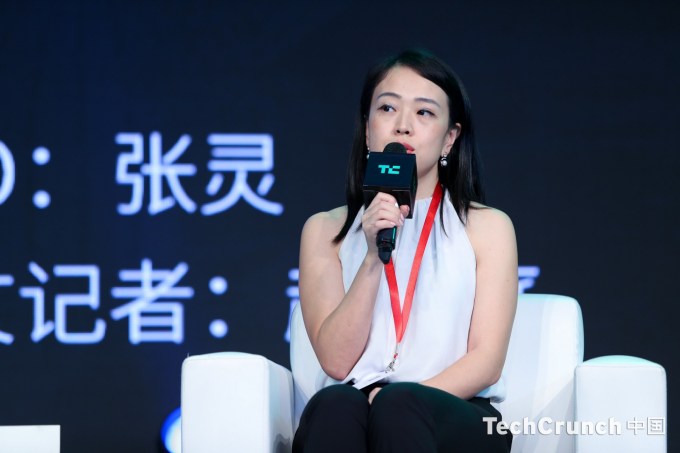#HTE
Who needs VCs? The largest companies in the crypto world are continuing to build the ecosystem through aggressive investments of their own, as I forecasted at the start of this year.
Binance, the world’s largest exchange, is the latest example. The company is marching beyond a gargantuan $1 billion fund it unveiled earlier this year after it announced an incubator program that’s focused on nurturing early-stage blockchain startups.
The Binance Labs Incubation Program was teased back in June when the company announced its fund, but now the company has taken off the wraps and provided more details — the venture is very aggressive.
The program will take on around 8-10 companies per batch for a 10-week period, Binance Labs CEO Ella Zhang told TechCrunch in an interview, adding that the target is to hold one program per quarter.
That frequency is unheard of, even by those who do incubators full-time, but there’s more. Binance Labs will hand out $500,000 to each program participant in exchange for a 10 percent stake in the business. Again, that’s a big effort compared to most other programs, although it is worth noting that Binance hasn’t decided whether that investment will be in fiat, crypto or a combination of both.
Beyond money, the company wants to open itself up and allow participants to access the benefits of being the world’s top crypto exchange. That’ll include mentoring, technical advice, access to the Binance network and also support on non-technical organization-building activities like HR, admin and more.
The maiden program will be held in San Francisco starting October 9 — applications to take part are open until September 14. As is commonplace, the program will close with a demo day — the “BUIDLer Day” — which will see startups pitch to an audience of investors, media and other industry figures.
Zhang explained that the focus on startups for the program is similar to the Binance fund. That, she said, includes projects focused infrastructure, public chain scalability, security, decentralized exchanges, wallets, custody, payment, coin stability, compliance, decentralized apps, gaming, virtual goods and more.
Ideal candidates have not taken any investment yet since Binance is aiming to be the first check, said Zhang — who joined the crypto firm in May and was formerly an investment director with KPCB China.
Going forward, Binance is aiming to operate the program in different parts of the world each time to address what it sees as global opportunities for blockchain businesses.
“We’re looking at different cities across the world because blockchain and crypto are international. We see problems and opportunities in different regions with different ways to leverage the blockchain,” Zhang said. She added that Africa and Asia are of particular interest at this point but no other destinations have been decided yet.

Binance Labs CEO Ella Zhang spoke at TechCrunch Hangzhou 2018
Zhang and Binance Labs director Christy Choi explained that the large equity check is designed to “facilitate” startup founders by allowing them to focus on developing a product or service, rather than having to set up a business.
With that in mind, the $500,000 investment will cover flights, accommodation and living costs associated with the incubator program and provide the capital to get a product off the ground and towards deployment. The program will maintain close links with the Binance fund, which is also managed by Zhang’s Binance Labs division, so there will be follow-on investment opportunities once the batch is done and as companies scale.
“Binance Labs began to do investments in the past few months and we’ve seen a lot of market hype which is distracting many founders from launching and delivering because there’s a huge demand from investors to get into their project,” Zhang said. “They need a lot of help to become a more mature team and company in order to really shape what they want to do.”
Unlike traditional companies that tap private investors for capital to start out and then as they grow, blockchain and crypto projects typically jump quickly into ICOs. Though often lucrative, the process can leave them dealing with retail investor expectation and concerns around legalities and other areas, all of which steals resources from actually building the business itself. Zhang believes the Binance program will help founders “get rid of those noises and focus on their product.”
Binance’s aggressive investment strategy makes perfect sense. As the world’s largest crypto exchange by volume — with over $1 billion trade in the last 24 hours at the time of writing — it is practically printing money but is also wholly reliant on the crypto industry.
Binance made a profit in the region of $450-$500 million (dependent on token prices) from its first year of operations — according to figures from the company, which uses 20 percent of its quarterly profits to buy back and ‘burn’ its BNB token — but it will always be a reflection of the crypto industry, and thus it needs it to be healthy.
That vested interest means it must ensure that there are meaningful blockchain and crypto companies in the world. That goes some way to explaining why it is offering a whopping $500,000 per participant and operating a massive $1 billion fund, which will be used to invest in funds as well as direct investments into startups.
To her credit, Zhang acknowledged the situation, stating that real use cases for blockchain and crypto are what will make Binance “thrive.” The incubator and fund are aimed at identifying those cases and enabling them to flourish, the question is whether Binance can find enough of what it is looking for.
Note: The author owns a small amount of cryptocurrency. Enough to gain an understanding, not enough to change a life.
https://techcrunch.com/2018/08/23/binance-labs-incubation-program/